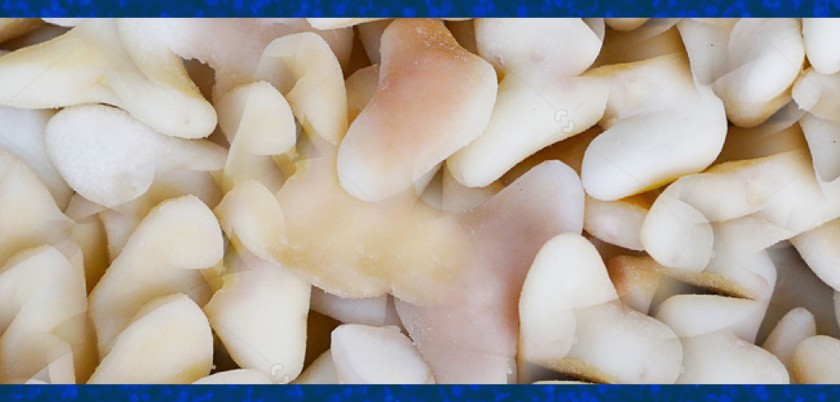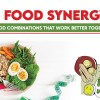
INDIAN WATER CHESTNUT- A WINTER FRUIT OF MARSHY LAND
Water chestnuts- they are the aquatic tuber vegetables that grow in shallow lakes, ponds, marshes and paddy fields. Don’t confuse them for ‘nuts’ as the term chestnut is a bit misleading too. These chestnuts are basically a tuber vegetable that can be enjoyed raw or cooked, having a crisp flavour due to the ‘ferulic acid’ present in them.
These water chestnuts, also called ‘paniphal’ or ‘singhara’ are native to China and a main ingredient used in Chinese households. Their medicinal properties have made them use in Ayurvedic and Unani systems of medicine.
Let’s discuss the benefits of this winter vegetable:
Powerhouse of nutrition
A 100g serving of raw water chestnuts provide:
Energy : 95.6 kcal
Carbohydrate : 21.46 g
Protein : 0.86 g
Fat : 0.37 g
Fiber : 3.02 g
Calcium : 37.15 mg
Carotenoid: 93.08 mcg
Magnesium : 57.43 mg
Potassium : 382 mg
( IFCT 2017)
These chestnuts are called high-volume foods as they are 74 % moisture and add bulk to the diet. Fiber content in them is the reason of the satiety they give when consumed. Being high in moisture, they are low in calories, providing around 95 kcal/ 100 g. The main source of calories is the carbohydrates.
Disease preventing properties
The environment we live in and the body’s daily catabolic reactions produce ‘free radicals’ in the body. These free radicals, when accumulated in the body, can lead to oxidative stress and interfere with the body’s defense systems. It can further invite various chronic diseases such as cancer, type 2 diabetes, heart diseases etc. Here comes the role of water chestnuts which appear as a shining light in this darkness of free radicals.
Water chestnuts are loaded with antioxidants typically ferulic acid, gallocatechin, gallate and catechin gallate. (You Y et al 2007)
A study conducted on the flavonoid content in the peel of this vegetable showed an antitumor, antioxidant and nitrite scavenging properties. (Zhan G et al 2016)
Adding on, the ferulic acid present in water chestnuts is the reason behind their crispy texture, even when they are cooked. (Parker C C et al 2003)
‘May’ lower the blood pressure and reduce the risk of heart diseases
The poll on deaths due to heart diseases is on a rise worldwide. The major risk factors behind the heart diseases are high blood pressure; altered lipid profile with high levels of LDL cholesterol, low levels of HDL cholesterol and high triglyceride levels; and strokes.
Our ancestors used water chestnuts for lowering the blood pressure and a probable reason for this is high potassium content of 382 mg/ 100g. Various studies have linked the role of a high potassium diet on lowering blood pressure. (Aburto N J et al 2013)
The water chestnuts being low in sodium and high in potassium can be safely used to control high blood pressure.
Effective weight loss strategy
Water chestnuts serve a very important function when it comes to weight loss. They are loaded with nutrition with a low calorie count. This brings into picture their role as a weight loss agent. They keep us full for a longer time. They are high-volume foods i.e. containing lot of water (which is calorie-free).
For achieving weight loss, it’s a very effective strategy to swap the less filling foods with more filling foods. (Rolls B J et al 1999)
Anti-cancer properties
Metastasis, which commonly occurs in breast cancer, is becoming a rising cause of mortality. Water chestnuts, being rich in ferulic acid possess anti-cancer properties.
A study was conducted to observe the effect of ferulic acid on tumor cells in a test tube. It showed a potential effect if this antioxidant on preventing breast cancer growth. (Zhang X et al 2016)
This similar effect has been observed for lung cancer cells, bone cancer cells and thyroid cancer cells. (Fong Y et al 2016; Wang T et al 2016; Dodurga Y et al 2016)
But since these studies are mostly based on test tubes, more effective human trials are suggested before recommendations.
Anti-ageing effect
Water chestnuts purify the blood by removing toxins from the body. This results in a glowing and youthful skin. (Rani et al 2016)
Remedy in measles
They are an effective strategy for measles patients. Having a drink of Water chestnuts boiled in water on a daily basis for at least 6-9 days of the cycle has remarkable results. A paste made from powdered skins of water chestnuts can be applied on the swollen areas of skin for relief. (Rani et al 2016)
Cure in Eczema
A paste made from water chestnut seed powder and lemon juice helps to cure eczema when applied regularly. (Rani et al 2016)
Hair care
These can be used for shiny and lustrous hair because they are rich in vitamin B, E, zinc and potassium. (Rani et al 2016)
Natural Coolant
It prevents dehydration in winters and act as a coolant to the body. (Rani et al 2016)
Gluten-free
Navratras observe the use of singhare ka atta. It is gluten free with a GI of 60. It also serves as a batter or thickener. They can easily replace the corn and potato starch. (Singh et al 2009)
12. Antibacterial properties
These have been proved to have potential antibacterial effect. So they can be effectively used to inhibit microbial growth. (Razvy 2011)
The final word
These aquatic vegetables are delicious and nutritious. They are a great source of antioxidants, keeping chronic diseases at bay. Try adding them to your diets these winters to reap their health benefits.






